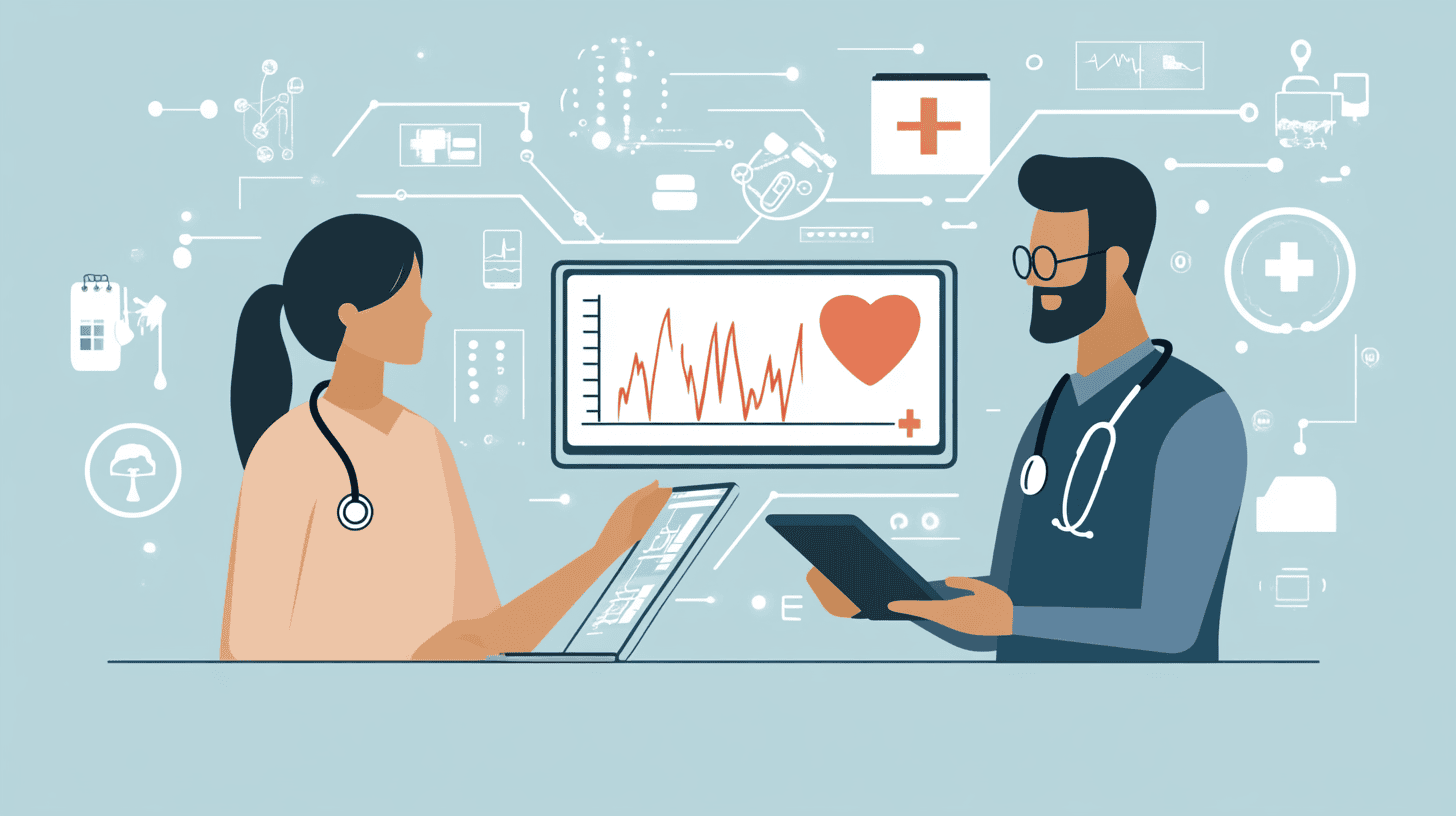The ever-evolving nature of the healthcare environment today is huge, mostly because leaps are being made concerning patient engagement through digital solutions, such as smooth processes, lines of communication, and collaboration between providers and their patients.
Integrating innovative applications into patient portals and state-of-the-art RCMs in telehealth may allow providers to present personalized, available, and highly efficient services to improve patient experience. Here’s how digital healthcare services enhance patient engagement:
The Role of Digital Platforms for Patient Engagement
Digital health empowers patients and allows them greater ownership and transparency regarding their medical journey.
For example, through portals, patients can book physician appointments, access their medical records, and interact with their health professionals at their convenience. Frictionless engagement like this breeds trust and fosters proactive health management.
The ACA also innovated the involvement of patients in health matters through increased access to healthcare services. It allows patients to consult doctors over a distance, reducing barriers in travel and geography.
Such virtual consultations help manage chronic diseases, follow-ups, and mental health services that require continuous interaction. Most telehealth platforms have symptom trackers and wellness reminders connecting patients to their health plans.
Other important contributors toward patient engagement include various mobile health applications. They provide them with the toolset to track health metrics, remember medication routines, and learn from educational resources. These tools will eventually allow patients to effectively manage their health by providing timely information and insight.
Revenue Cycle Management
From the revenue cycle management perspective, digital platforms can significantly offer patient engagement to ease the billing and payment process. Healthcare providers with automated RCM tools such as ehr rcm reduce their billing errors and increase on-time payments by, thus improving the patient’s satisfaction and clarity on their finances.
Sometimes, conventional billing processes confuse patients about their payments. Digital RCM solutions address this issue by providing transparent, clearly understandable bills.
For example, a platform that allows an integrated, easy-to-navigate dashboard enables the patient to access statements, estimate out-of-pocket costs, and make payment plans. Automated notifications keep the patient aware of impending deadlines to avoid missed deadlines.
This will eventually build a friendlier financial relationship with the provider. The systems integrate with electronic health records to provide an integrated look into the patient journey related to their healthcare, both clinically and financially, in one location.
Integration no doubt enhances the experience of patients and allows the facilitation of seamless operations on the provider end.
Examples of Digital Healthcare Platforms in Action
Several enlightening platforms indicate the stride at which digital health solutions are changing.They streamline the billing and communication cycles of medical entities.
Major chunks of the revenue cycle management are smoothed out by the platform, thereby reducing the administrative overhead for your staff to a minimum while giving patients real-time updates with personalized financial insights.
Other examples include telehealth means, such as virtual visitation platforms, used in most medical facilities. Such solutions have been irreplaceable in increasing patient accessibility during public health crises like the COVID-19 pandemic.
Patient engagement in hospitals and clinics utilizing this technology has increased, and many have testified to high satisfaction rates due to convenience and flexibility.
Wearables, including fitness trackers and smartwatches, are other ways patient engagement is involved. They can monitor vital signs and physical activities while offering feedback encouraging healthy behaviors.
When integrated into health systems, wearables support clinicians with important insights into patient health to inform more cognizant and proactive care plans.
The Future of Patient Engagement
Further development by and for emerging technologies such as artificial intelligence and machine learning will be done to further enhance engagement by way of predictive analytics, prescriptive care recommendations, and even more intelligent RCM solutions since healthcare will keep accelerating in its journey of digital transformation.
For instance, AI-based chatbots find their place in the healthcare arena. Such a conversational device can support patients with frequently asked questions, set appointments, and remind them about their medication intake.
Similarly, ML algorithms analyze patient data for those at risk due to chronic conditions and thus provide early interventions and personalized treatment plans.
Another modern trend that might change patient engagement is blockchain technology. Blockchain secures medical records and maintains the data’s integrity, thereby earning the patient’s trust in becoming more actively involved in their healthcare decision-making.
Ultimately, the success of such initiatives rests in how much change meets the larger and emerging expectations of the patients for integrating digital tools within the providers’ workflow. With the key focus being on patient-centered care through digital innovation, the results are improved, and so is the relationship with the patients.
Endnote
Digital health services have so much going right in the very concept of care: making it more available, personalized, and transparent.This technology empowers the patient by breaking barriers to care and furthering his financial-medical knowledge.
That means extending possibilities through wearable devices, mobile applications, and AI-powered support systems that promise far more active and better-informed health management. Since the industry is modernizing, accepting such technology tools would be vital to ensure good care and improve patient experiences.
To read more content like this, explore The Brand Hopper
Subscribe to our newsletter




